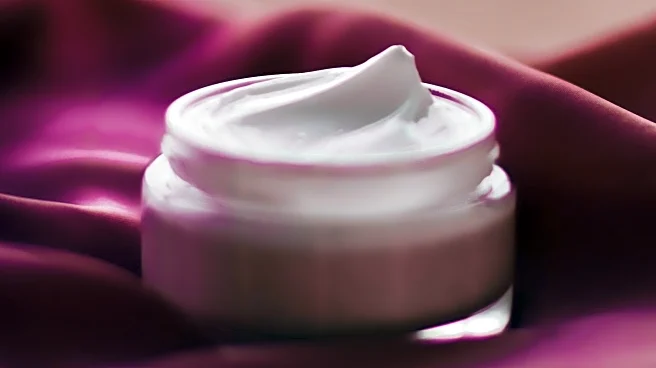What's Happening?
The practice of 'menstrual masking,' which involves applying menstrual blood to the skin as a DIY skincare treatment, has gained popularity on social media. Advocates claim that menstrual blood contains
stem cells and proteins that could rejuvenate the skin, although there is no clinical evidence supporting its use in skincare. The trend has sparked debate, with some viewing it as empowering and others cautioning against potential risks, such as bacterial infections. While menstrual blood's biological composition has shown potential in medical research, experts advise that its safe use should be confined to controlled environments rather than DIY routines.
Why It's Important?
The viral nature of menstrual masking highlights the influence of social media on beauty practices and the potential for pseudoscience to gain traction among consumers. This trend raises concerns about the safety of using bodily fluids in skincare without scientific validation. It underscores the need for consumers to critically evaluate beauty trends and seek evidence-based practices. The discussion around menstrual masking also touches on broader themes of body positivity and cultural rituals, illustrating the complex interplay between personal beliefs and scientific evidence in the beauty industry.










